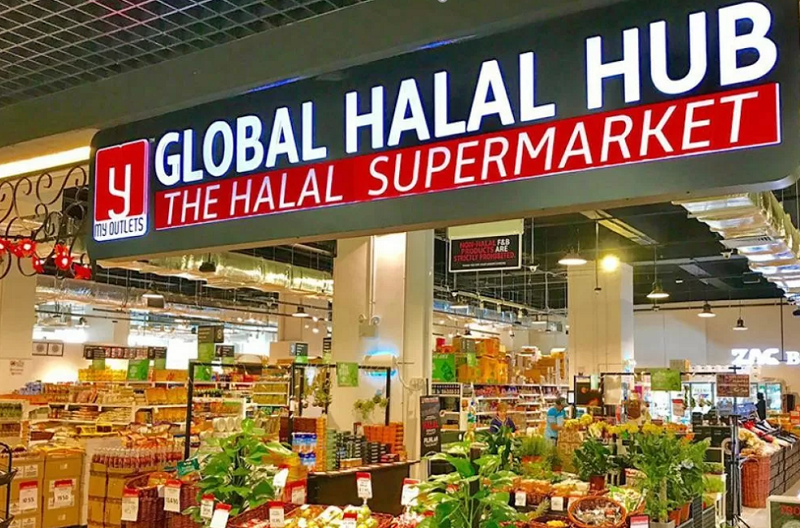What Is Halal Food? A Comprehensive Guide to Standards, Benefits, and Certification
Estimated reading time: 12 minutes
Key Takeaways
- Halal food refers to food that is permissible to consume under Islamic law, meaning “permissible” or “lawful”.
- Core principles include permissible sourcing, proper processing, and the absence of prohibited (Haram) ingredients like pork, alcohol, and blood.
- Halal meat requires ritual slaughter known as Zabiha, emphasizing humane treatment and hygiene.
- Halal certification verifies compliance, ensures safety, expands market access for businesses, and builds consumer trust.
- Certification standards include ingredient inspection, production processes, hygiene, and prevention of cross-contamination.
- Benefits of Halal certification include access to global markets, enhanced reputation, competitive advantage, and assurance of ethical and safety standards.
Table of Contents
- What Is Halal Food? Definition and Core Principles
- The Importance of Halal Certification and the Standards Required to Obtain It
- Standards Required for Halal Certification: Principles and Criteria
- Common Types of Halal Food
- The Halal Certification Process for Food: Steps and Accredited Organizations
- Where to Find Halal Food?
- Tips for Preparing Halal Food at Home
- Benefits of Halal Certification for Businesses and Consumers
- Conclusion: Exploring the World of Halal Food
- Frequently Asked Questions (FAQ)
Halal food is not just a dietary term; it is an integral part of the spiritual, cultural, and practical lives of millions of Muslims worldwide. Understanding Halal food, its strict standards, and suitable products is crucial, not only for the Muslim community but also for businesses looking to enter this potential market. This article will provide a comprehensive overview of the world of Halal food, from its definition, rules, and certification process to the benefits of Halal certification for businesses and consumers.
In the context of increasing globalization and cultural exchange, understanding Halal dietary rules promotes respect, understanding, and facilitates international trade. Let’s explore in-depth the diverse aspects of Halal food and its importance in modern life.
What Is Halal Food? Definition and Core Principles
So, what exactly is Halal food? The term “Halal” in Arabic means “permissible” or “lawful”. In the context of food, Halal Food refers to food and beverages that are permissible for consumption according to Islamic law, based on guidelines outlined in the Qur’an and other Islamic texts.
Definition and Principles:
Halal food includes food products that are considered lawful under Islam. These foods must adhere to the principles stated in the Qur’an, which emphasize cleanliness, purity, wholesomeness, and adherence to specific dietary rules.
The basic principles of Halal food include:
- Permissible source: The food must come from permissible (Halal) sources.
- Proper processing: The preparation, processing, packaging, and storage must comply with Halal standards.
- Free from Haram ingredients: The food must not contain any components that are prohibited (Haram) under Islamic law.
The opposite of Halal is Haram, which means “prohibited” or “unlawful”. Common Haram foods and beverages include:
- Pork and pork by-products (like lard, pork-based gelatin).
- Alcohol and intoxicants.
- Blood and blood by-products.
- Carnivorous animals with fangs (like lions, tigers).
- Birds of prey with talons (like eagles, hawks).
- Amphibians (like frogs).
- Animals that died before being slaughtered according to Islamic rites.
- Animals not slaughtered humanely according to the Zabiha rite.
Understanding the difference between Halal and Haram is fundamental to adhering to Islamic dietary rules.
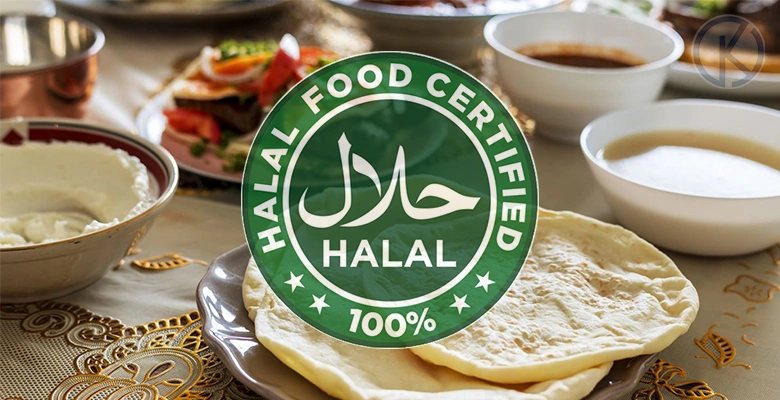
The Importance of Halal Certification and the Standards Required to Obtain It
In a complex global market, how can Muslim consumers be sure that the food they buy is truly Halal? This is where Halal certification plays a crucial role.
Halal certification is a process that verifies that food products, production processes, and facilities comply with strict Halal standards. Obtaining this certification offers many benefits:
- Ensuring Compliance: Certification provides assurance to Muslim consumers that the products they purchase meet their religious requirements. It builds trust and peace of mind.
- Ensuring Safety and Hygiene: The certification process often includes rigorous inspections for hygiene, food safety, and traceability, which contributes to the overall quality of the product. This benefits not only Muslims but all consumers concerned about safe food.
- Market Expansion: For businesses, Halal certification opens the door to the global Halal food market, a thriving market and is estimated to be worth over $2 trillion. This represents a significant business opportunity.
- Promoting the Halal Economy: Certification contributes to the growth of the Halal economy, which includes agriculture, food production, food services, and tourism.
Understanding the standards required to obtain Halal certification is the first step for businesses wanting to enter this market and effectively serve the Muslim community.
Standards Required for Halal Certification: Principles and Criteria
For a food product to be recognized as Halal and obtain certification, it must meet a series of strict standards and rules based on Islamic dietary laws. The standards required for Halal certification are not limited to ingredients but also cover the processes of slaughter, processing, and handling.
Detailed Halal Dietary Laws
The core principles of Halal dietary laws include:
- Prohibition of Haram substances: As mentioned, pork, alcohol, blood, and their by-products are strictly forbidden. This applies to both main ingredients and additives, flavorings, or processing aids.
- Slaughter according to Zabiha rite: This is a critical requirement for Halal meat and poultry. The Zabiha process includes the following steps:
- The slaughterer must be a sane, adult Muslim.
- The name of Allah (God) must be invoked before or during the cut.
- A sharp knife must be used to make a swift, deep incision into the throat, cutting the jugular veins, carotid arteries, and trachea.
- The purpose is to cause a quick death and drain all the blood, minimizing pain. This process emphasizes humane treatment of animals and respect for the life given by God.
- The animal must be alive and healthy at the time of slaughter.
- Prevention of Cross-Contamination: This is an extremely important aspect. Halal food must be prepared, processed, stored, and transported completely separate from Haram food. This means:
- Using separate utensils, equipment, and processing surfaces for Halal food.
- Thoroughly cleaning equipment and work areas to remove any traces of Haram substances.
- Clearly packaging and labeling to distinguish Halal products.
- Maintaining Strict Hygiene Standards: Hygiene and cleanliness are fundamental in Islam and are strictly applied in Halal food production. Production facilities must maintain a clean environment, free from the risk of contamination from Haram sources or other unsanitary elements.
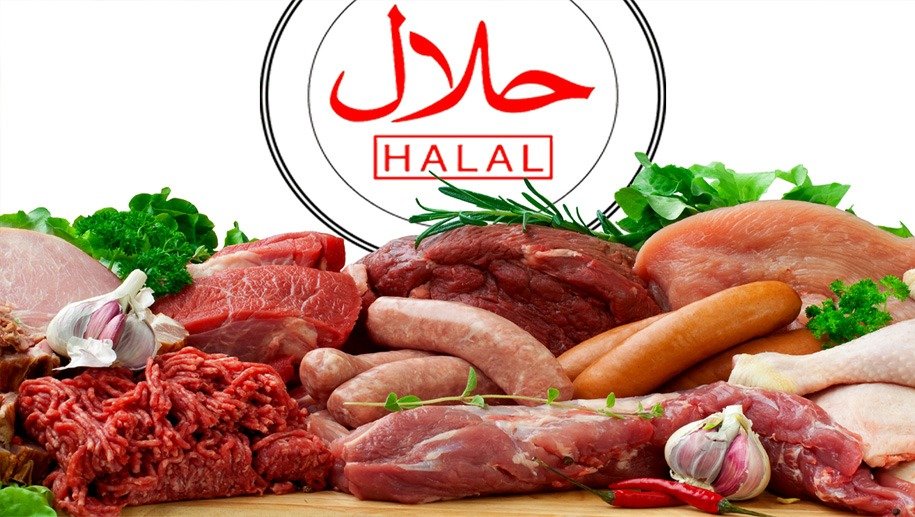
Specific Criteria for Halal Food
In addition to general principles, there are specific criteria that food must meet:
- Pure and Wholesome: The food must be clean, pure, nutritious, and free from any ingredients harmful to health. The concept of “Tayyib” (good, wholesome, pure) often goes hand-in-hand with Halal.
- Free from Hidden Haram Ingredients: The ingredient list must be carefully checked. Common additives like gelatin (often from pork), lard, enzymes (can be from Haram sources), or wine-based extracts can render a product Haram if their source is prohibited.
- Clear Traceability: The manufacturer must be able to prove the Halal origin of all ingredients used, from raw materials to the finished product.
Adhering to the standards required for Halal certification ensures that the product is not only religiously lawful but also often of high quality and safety.
Common Types of Halal Food
The scope of Halal food is vast, covering many familiar everyday foods, as long as they meet the stated standards. Here are the main food groups and specific considerations:
- Halal Meat and Poultry:
- This is the food group with the strictest requirements.
- Meat (beef, lamb, goat) and poultry (chicken, duck, turkey) must come from animals slaughtered according to the proper Zabiha rite.
- The origin of the animals is also important – they must be fed a Halal diet.
- Looking for the Halal certification mark on the packaging is the best way to ensure meat and poultry are Halal.
- Seafood:
- Most schools of Islamic thought consider all fish with scales and sea creatures that live entirely in water to be Halal.
- However, there are differences in interpretation among Islamic schools of jurisprudence (Madhabs) regarding other types of seafood like shrimp, crab, and shellfish.
- In general, seafood is considered a safe and popular choice in a Halal diet.
- Dairy Products and Eggs:
- Milk (from Halal cows, goats, sheep) and eggs (from Halal poultry) are generally considered Halal.
- However, attention must be paid to processed dairy products like cheese or yogurt. They may contain enzymes (e.g., rennet) or gelatin derived from non-Halal slaughtered animals or pork.
- Checking the ingredients and looking for Halal certification on processed dairy products is very important.
- Grains, Fruits, and Vegetables:
- All types of grains (rice, wheat, corn), legumes, fruits, and vegetables in their natural form are Halal. They are the foundation of many healthy diets, including the Halal diet.
- It is important to ensure they are not cross-contaminated with Haram substances during harvesting, processing, or cooking. For example, vegetables stir-fried in lard are no longer Halal.
- Processed grain products (bread, pasta) should have their ingredients checked to ensure they do not contain Haram additives.
Recognizing these types of Halal food helps consumers easily choose and prepare meals that align with their religious beliefs.
The Halal Certification Process for Food: Steps and Accredited Organizations
For a business to legally declare its products as Halal and use a Halal certification mark, it must undergo a rigorous certification process. The Halal certification process for food ensures transparency, compliance, and reliability.
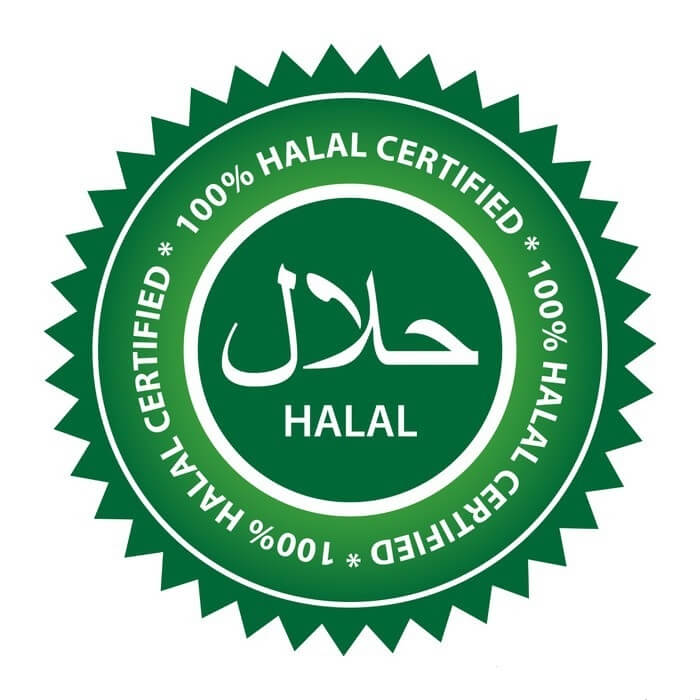
Steps in the Halal Certification Process
Although the specific process may vary slightly depending on the certification body and country, the core steps generally include:
- Application Submission:
- The business completes and submits a detailed application to a recognized Halal certification body.
- The application typically requires information about the company, production facilities, a list of products to be certified, and a detailed list of all ingredients and raw material suppliers.
- Document Review and Ingredient Assessment:
- The certification body will thoroughly review the documents, especially the origin and Halal status of each ingredient, including even trace amounts of additives and processing aids.
- They may request additional documentation from suppliers for verification.
- Facility Inspection/Audit:
- Halal auditors will conduct a physical inspection of the business’s production facility.
- This inspection focuses on:
- Hygiene: Ensuring the production environment is clean and adheres to strict hygiene standards.
- Production Process: Reviewing the entire process from receiving raw materials, processing, packaging, to storage to ensure there is no risk of cross-contamination with Haram substances.
- Traceability: Checking the record-keeping system to ensure the ability to trace the Halal origin of raw materials.
- Warehousing: Ensuring that storage areas for Halal raw materials and finished products are completely separate from non-Halal products.
- Slaughter (if applicable): If the business produces meat or poultry, the Zabiha slaughter process will be thoroughly inspected.
- Staff Training:
- A key requirement is that employees directly involved in the production process must be trained on Halal principles and requirements. They need to understand the importance of compliance and how to prevent cross-contamination.
- Issuance of Halal Certificate:
- If the business meets all requirements and standards, the certification body will issue a Halal Certificate.
- This certificate is typically valid for a specific period (usually one year) and allows the business to use the organization’s Halal logo on approved products.
- Monitoring and Periodic Re-assessment:
- Halal compliance is an ongoing process. The certification body will conduct periodic surveillance audits (often unannounced) to ensure the business maintains Halal standards.
- The certification needs to be renewed through a similar re-assessment process.
Recognized Halal Certification Bodies
There are many organizations worldwide that provide Halal certification services. The reputation and recognition of these bodies are very important, as not all Halal logos are widely accepted in every country or by all Muslim communities. Some prominent and internationally recognized organizations include:
- Islamic Food and Nutrition Council of America (IFANCA): One of the leading organizations in North America with global recognition.
- Islamic Society of North America (ISNA Halal Certification Agency): Another reputable organization in North America.
- American Halal Foundation (AHF): Provides certification services in the United States and internationally.
- Halal Food Council of Europe (HFCE): A key organization in Europe.
- Majelis Ulama Indonesia (MUI): The official and highly influential Halal certification body in Indonesia, the world’s most populous Muslim country.
- Department of Islamic Development Malaysia (JAKIM): The Malaysian government agency responsible for Halal certification, whose standards are widely recognized globally.
- Halal Certification Authority (HCA): Operates in Australia and other regions.
Choosing a reputable certification body that is recognized in the target market is crucial for businesses wishing to undergo the Halal certification process for food.
Benefits of Halal Certification for Businesses and Consumers
Choosing and consuming Halal food, as well as businesses obtaining Halal certification, brings many profound benefits that extend beyond a purely religious framework. The benefits of Halal certification for businesses and consumers include health, ethical, cultural, and economic aspects.
Health and Ethical Considerations
- High Standards of Hygiene and Safety:
- The Halal production and certification process often comes with very strict requirements for hygiene and food safety. This includes maintaining clean facilities, controlling pests, and preventing contamination. As a result, Halal food is often considered cleaner and safer.
- The prohibition of blood in food also eliminates a potential source of bacteria.
- Humane Treatment of Animals:
- The Zabiha slaughter rite, when performed correctly, emphasizes minimizing pain and stress for the animal. The requirement for the animal to be healthy and well-treated before slaughter also promotes higher animal welfare standards in the Halal livestock industry.
- Many consumers, regardless of religion, choose Halal food for ethical reasons related to the treatment of animals.
- Wholesome and Pure Food (Tayyib):
- The concept of Halal is often linked with “Tayyib” (good, pure, wholesome). This encourages the consumption of natural foods, free from questionable additives or genetically modified ingredients (depending on the specific standard).
- Avoiding alcohol and pork (which can be high in saturated fats) may also contribute to a healthier diet.
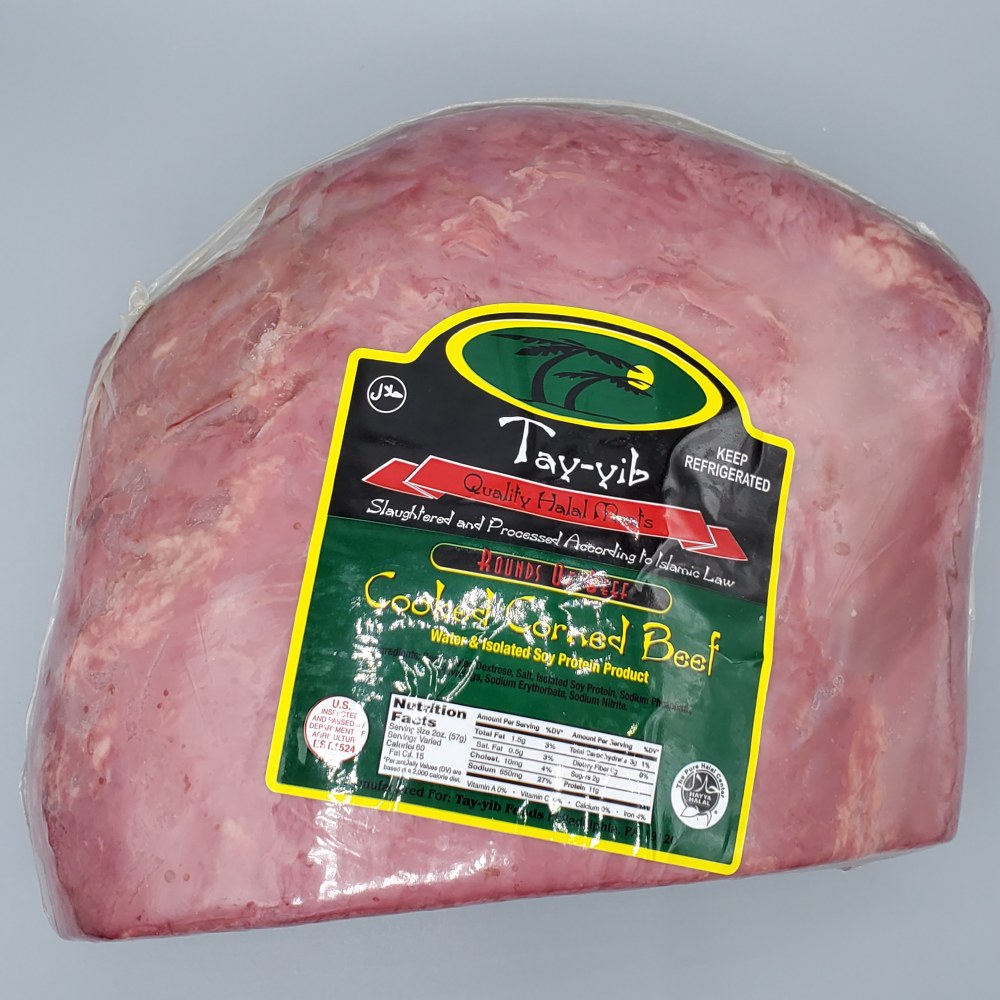
Cultural and Religious Significance
- Adherence to Religious Doctrine:
- For Muslims, consuming Halal food is an act of worship, demonstrating obedience to the commandments of Allah as stated in the Qur’an. It is an integral part of practicing the faith.
- Cultural Identity and Community:
- Halal food plays a central role in the festivals, ceremonies, and daily life of Muslim communities. Sharing Halal meals helps strengthen family and community bonds.
- It creates a sense of belonging and maintains Muslim cultural identity, especially for minority communities living abroad.
- Spiritual Connection:
- Consciously choosing and consuming what is permitted by God helps nurture gratitude and a deeper spiritual connection.
Economic Benefits (Especially for Businesses)
- Access to a Huge Market: As mentioned, the global Halal market is worth trillions of dollars and continues to grow rapidly due to the rising Muslim population and increasing awareness. The benefit of Halal certification for businesses is that it opens the door to this large and loyal consumer segment.
- Building Trust and Credibility: Halal certification is a sign of transparency and commitment to quality, helping to build trust not only with Muslim consumers but also with other consumers interested in safe and ethical food.
- Competitive Advantage: In an increasingly competitive market, having Halal certification can be a key differentiator, helping a product stand out and attract a specific target customer group.
- Facilitating Exports: For businesses looking to export to countries with large Muslim populations, Halal certification is often a mandatory requirement or provides a significant advantage.
Overall, the choice and certification of Halal food provide multi-dimensional value, from personal health and ethical responsibility to community cohesion and economic opportunity.

Conclusion: Exploring the World of Halal Food
Through this article, we have explored the core aspects of Halal food. From the basic definition of what is permitted and prohibited under Islamic law, to the strict standards of slaughter, processing, and hygiene, we have seen that Halal is more than just a list of dietary rules.
We have learned about the importance of Halal certification in ensuring compliance and building trust, as well as the detailed process to obtain this certification. Additionally, we have reviewed common types of Halal food, from meat and seafood to dairy and plant-based products, along with reliable places to find them. Tips for home preparation and a clear understanding of the benefits of Halal certification for businesses and consumers in terms of health, ethics, and culture have completed the overall picture.
Halal food is an indispensable part of the lives of billions of people worldwide, representing the intersection of faith, culture, ethics, and health. Understanding Halal not only helps Muslims maintain their religious practices but also opens up opportunities for others to discover a rich culinary tradition, high food safety standards, and commendable ethical values.
We encourage you to continue learning, exploring, and even enjoying the diverse options of Halal food. Whether you are a Muslim, a business seeking opportunities, or simply a consumer interested in quality food with clear origins, the world of Halal always has something interesting and meaningful for you to discover. It is not just a choice about what you eat, but also an expression of faith, moral values, and a healthy, conscious lifestyle.
Frequently Asked Questions (FAQ)
1. Is Halal the same as Kosher?
Halal and Kosher (Jewish dietary law) have some similarities (e.g., prohibition of pork, requirement of ritual slaughter) but also have many significant differences in the slaughter process, the types of animals permitted/prohibited, and the mixing of meat and dairy. A Kosher product is not automatically Halal, and vice versa.
Many people believe that Halal food is healthier due to strict hygiene standards, the removal of blood, and the emphasis on animal welfare. The concept of “Tayyib” (good, pure) is also associated with Halal. However, the overall nutritional value still depends on the type of food and how it is prepared, similar to non-Halal food.
3. How can I tell if a restaurant is Halal?
The surest way is to look for a Halal certificate from a reputable organization displayed at the restaurant. You can also ask the owner or staff directly about the source of their meat and their preparation process. Many apps and websites now also list verified Halal restaurants.
Most schools of Islamic thought consider fish with scales to be Halal. However, there are differing opinions regarding other types of seafood such as shellfish (shrimp, crabs, clams, mussels) or sea creatures that do not resemble fish. It is best to consult with Islamic scholars or follow the interpretation of the school of jurisprudence you adhere to.
5. Is Halal certification mandatory for all foods?
Halal certification is not mandatory for foods that are inherently Halal (like fresh fruits and vegetables). However, it is very important for processed products, meat, poultry, and items that are at risk of containing Haram ingredients or being cross-contaminated. For export to many Muslim-majority countries, Halal certification is often a legal or commercial requirement.

